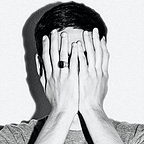What If I Said No? (And Other Questions to Consider Daily)
A self-interview to prompt awareness, focus, and growth
 Voltaire said the way to judge a person was by the questions they asked. I think that’s right. Because none of us are perfect and we all fall short of our own standards, what matters are the questions we ask—of ourselves and other people — in our pursuit of self-improvement. What matters is the wrestling we do as we work to find the answers.
Voltaire said the way to judge a person was by the questions they asked. I think that’s right. Because none of us are perfect and we all fall short of our own standards, what matters are the questions we ask—of ourselves and other people — in our pursuit of self-improvement. What matters is the wrestling we do as we work to find the answers.
A few years ago I wrote a piece about 12 questions I think we should ask ourselves on a daily basis. They included questions about the company we keep, the worries we indulge, and the purpose we set for ourselves. They are questions whose answers have changed a lot for me as I have asked them throughout my life, but they have never failed to make me better or give me something to think about.
I’ve also realized they don’t address everything I believe is important. So here are 13 more questions that will change your life, if you let them — if you ask them consistently and try to answer them honestly.
How can I be stronger for this?
Ernest Hemingway supposedly said the first draft of everything is shit — which, of all the beautiful things Hemingway has written, applies most of all to the end of his novel, A Farewell to Arms.
One passage clearly challenged Hemingway more than the others — and it’s there in the final pages, which he rewrote something like 47 times. It appears after the protagonist Frederic’s wife Catherine has died after delivering their stillborn son and he is struggling to make sense of the tragedy that has just befallen him. “The world breaks everyone,” Hemingway wrote, “and afterward many are strong at the broken places. But those that will not break it kills.”
The world will break us. It breaks everyone. It always has and always will.
The question: Will we futilely resist it? Or will we accept the will of the universe and instead become stronger where we were broken?
Because those that cannot break cannot learn, and cannot be made stronger for what happened. There is a form of Japanese art dating back to the 15th century called kintsugi. Masters take broken…
